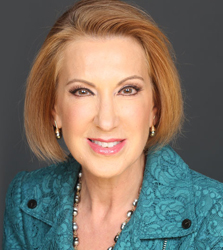
Candidates Scramble to Make Republican Debates
The first Republican debate will be held on Aug. 6 in Cleveland. Because only the top 10 candidates according to national polls will be on stage, six candidates and possibly seven (if Jim Gilmore enters the race by that date) will likely miss the cutoff. (“Likely” because in the event of a tie for 10th place, the tied candidates will be allowed on stage.)
Politico has an interesting article on several of the candidates who could be excluded from the first debate:
The GOP’s Battle for 10th Place
Debate host Fox News has decided that only the top 10 contenders, determined by an average of national polls out by Aug. 4, will merit a spot onstage — setting off a Darwinian struggle that has some candidates taking desperate measures to try to move their numbers, and others spinning away their near-certain failure to qualify. Several campaigns also are already spending hundreds of thousands of dollars on TV ads to boost their profiles, even though the Iowa caucuses are six months away….
According to POLITICO’s latest average of national polls, eight candidates are looking like a lock for the debate: Donald Trump, Jeb Bush, Scott Walker, Marco Rubio, Ted Cruz, Rand Paul, Mike Huckabee and Ben Carson. [Rick] Perry and Chris Christie are in for now, but only barely. Those still with a chance to make the stage are John Kasich, Rick Santorum and Bobby Jindal. For the other candidates — Carly Fiorina, George Pataki, Lindsey Graham and Jim Gilmore — it will be very difficult to get to Cleveland.
Christie and Perry have tenuous holds on the final two spots on stage, according to Politico, and the super PACs supporting both of them are spending $800,000 and $500,000, respectively, to solidify their positions. Their focus is less on getting their numbers up to make it into the debate and more on making sure the candidates behind them don’t jump ahead.
The candidates currently hoping to move up have different strategies and perspectives on getting into the debates. Graham has complained about the criteria, while Fiorina’s camp is suggesting it’s not really a big deal to miss the first debate or two:
“We have a long-term view of this primary,” said Sarah Isgur Flores, deputy campaign manager for former Hewlett-Packard CEO Carly Fiorina. “Not one debate, not one event is going to dictate how we see this race.”
That is a marked shift in emphasis for the Fiorina camp: Earlier this summer, Fiorina was campaigning aggressively to get onto the debate stage, running online ads and pumping out fundraising appeals. Now, her campaign says she won’t be making any special plays to push her over the finish line in the final weeks, though over the weekend, Flores did flag two surveys that showed Fiorina making the cut.
Santorum’s campaign is saying the debates aren’t important, it’s how well candidates do in the early states — but this raises the question of how well a candidate can do in those states if he or she doesn’t appear in the debates. Kasich’s campaign professes to be similarly unconcerned, according to the article, but it also appears to have timed its announcement in part in an attempt to get a boost in the polls to make it into the debate (and it may have worked, judging by a recent CNN poll showing Kasich in the top 10).
While Politico reports on the jockeying among candidates for the 10th spot on stage and the pre-explaining by some for why they didn’t make the cut, The Washington Post has an article on what separates “real” candidates from the rest:
The Republican Party has a straw poll asking visitors to its Web site to pick their top three 2016 candidates. Of the 127 Republicans that have filed as candidates this year, the party only identified 18 as worth of inclusion. They're the 16 that you've heard mentioned for the past few months -- your Jebs and your Ricks and your Bobbys and so on. No. 17 is Jim Gilmore, former governor of Virginia and not-yet-declared 2016 candidate.
And then there's Mark Everson. Everson was a member of the administrations of former presidents Reagan and George W. Bush, and under the latter served as the commissioner of the IRS. We've checked in with him before, in part because he serves as a great representative of a difficult question: What makes a candidate a "real" candidate? It's a question that assumes increased relevance with each passing week, as pollsters, media outlets and debate organizers try to figure out who is worthy of attention and who isn't.
When we spoke by phone on Monday, Everson pointed to the RNC's inclusion of his name on that list as evidence that he should be considered real, that he should be included. "The national Republican party has a number of individuals in the straw poll on their Web site," he said. "They used whatever thoughts they had and recognized that my level of national service is significant. I ran the immigration system. I ran the tax system. I helped create the Homeland Security department."
The question of which candidates are "real" and should be considered for inclusion in debates and other events is likely to intensify in the next few weeks, and so long as the Republicans have a plethora of candidates, the question is likely to remain.



